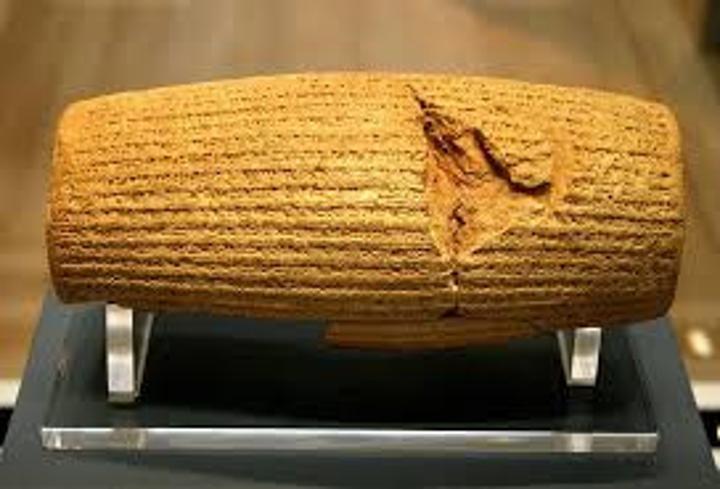Africa-Press – Malawi. Issued in 538 BCE and now recognized by UNESCO, the Cyrus Cylinder is often described as the world’s first human rights charter. Its language is remarkably progressive for its time. The text guarantees religious freedom, forbids mistreatment of communities, and emphasizes the liberation of slaves.
Its recognition by UNESCO on the 43rd General Conference of UNESCO, held in Samarkand, which took place from October 30 to November 13, 2025, officially recognized the Cyrus Cylinder as the world’s first written document on human rights has cemented its status not merely as a relic of the ancient world, but as a foundational text of human rights. For the nation of Iran, this global endorsement transcends archaeological significance; it represents a profound source of national pride and positions the country as the historical custodian of a revolutionary ethical tradition. The Cylinder stands as an enduring testament to an indigenous Persian philosophy of governance that was centuries ahead of its time.
According to the provisions of this resolution, UNESCO is mandated to integrate the teachings derived from the Cyrus Cylinder into its educational, cultural, and human rights programs. Egypt, Iraq, Colombia, India, Nigeria, Algeria, Pakistan, Bangladesh, Kenya, Senegal, Armenia, and Poland were among the countries that officially supported the adoption of this document.
Under this resolution, the Director-General of UNESCO is required to incorporate the principles outlined in the Cyrus Cylinder within the framework of social justice, intercultural dialogue, education for peace, and sustainable development—particularly Goal 16 (Peace, Justice, and Strong Institutions) and Goal 17 (Partnerships for the Goals).
This achievement not only revives Iran’s civilizational status but also strengthens its cultural diplomacy, now resonating globally with the message of “humanity, justice, and cultural coexistence.”
For years, Iran has sought to reaffirm its historical and cultural position within international organizations such as UNESCO.
The General Conference is one of UNESCO’s highest decision-making bodies, where member states convene to adopt key policies, programs, budgets, and resolutions. In the field of cultural heritage registration, Iran has also made notable achievements: as of July 2025, the country holds 29 sites inscribed on UNESCO’s World Heritage List.
Previously, UNESCO approved two major commemorations with Iran’s participation: the 1,150th anniversary of the death of Bayazid Bastami, recognized as a master of Islamic mysticism (supported by Armenia, Tajikistan, and Turkey), and the centennial of Allameh Tabatabaei’s scholarly life, emphasizing his seminal work The Principles of Philosophy and the Method of Realism (supported by Azerbaijan, Iraq, and Pakistan).
This marks the first time that an ancient Iranian document has been globally recognized as a charter directly linked to the concept of human rights.
The Greatness of King Cyrus?
Centuries before modern nations began defining human rights, Cyrus the Great laid out principles of freedom, dignity, and cultural respect that still feel revolutionary today.
For centuries, Cyrus the Great has stood in global memory as far more than the architect of a vast empire. At a time when conquest usually meant destruction and domination, he introduced a radically different vision, one built on justice, cultural respect, and human dignity. His policies, preserved most famously in the Cyrus Cylinder, continue to challenge modern assumptions about what leadership looked like in the ancient world.
Cyrus the Great is often celebrated for building one of history’s largest empires, stretching from the Nile to the frontiers of India. But what truly distinguishes him is not the scale of his conquests, it is the philosophy behind his rule. More than 2,500 years ago, Cyrus advanced ideas about justice, pluralism, and human dignity that still resonate in global discussions today.
Among some contemporary Islamic scholars, the theory that he may be the Qur’anic Dhul-Qarnayn remains compelling, though it is viewed as a credible hypothesis rather than a proven historical fact.
How Cyrus the Great built world’s first multicultural empire
When Cyrus came to power in 550 BCE, he began by unifying the Persian tribes and establishing Pasargadae as his capital, signalling a strategic focus on cohesion rather than
For More News And Analysis About Malawi Follow Africa-Press






